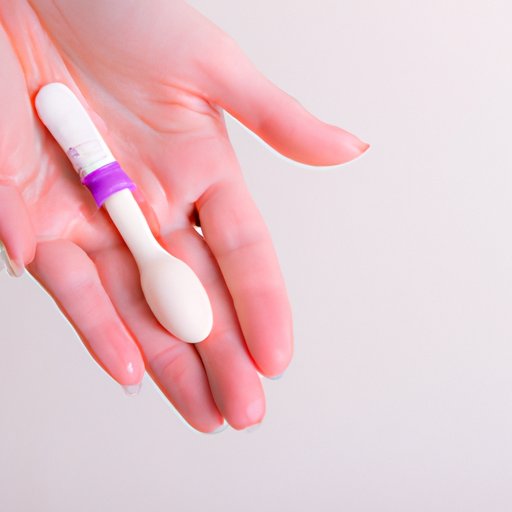
How Long Does It Take to Get Pregnant?
When it comes to starting a family, many people assume that getting pregnant will happen quickly and easily. However, the reality is that conception can take time, and many factors can impact fertility. While everyone’s fertility journey is different, there are common factors that can affect fertility and impact the time it takes to get pregnant. In this article, we will explore the science of pregnancy, timing sex for conception, common fertility issues and treatment options, lifestyle habits that affect fertility, alternative methods for getting pregnant, and the emotional rollercoaster that can come with struggling to conceive.
The Science of Pregnancy
Before diving into the factors that can impact fertility, it’s important to understand the basics of the female reproductive system. The ovaries produce and release eggs, which then travel down the fallopian tubes toward the uterus. Sperm must travel through the cervix and up through the uterus to reach the egg in order to fertilize it. If the egg is fertilized, it will travel into the uterus and implant itself in the uterine lining, resulting in pregnancy.
Age, hormone levels, and underlying health conditions can impact fertility. As a woman ages, her fertility naturally decreases, as fewer eggs are released and the quality of the remaining eggs may decline. Hormonal imbalances can also impact fertility, especially in conditions such as polycystic ovary syndrome (PCOS). Certain health conditions, such as endometriosis, fibroids, and pelvic inflammation, can also impact fertility in both men and women.
While the female reproductive system plays a significant role in conception, it’s important to note that male fertility also plays a crucial role. Sperm count, motility, and morphology are all factors that can impact male fertility and affect the chances of conception.
Timing Is Everything
One of the keys to getting pregnant is timing sex around ovulation. Ovulation typically occurs 14 days before the start of the next menstrual cycle. For example, if a woman has a 28-day cycle, she will likely ovulate around day 14. However, not all women have a regular menstrual cycle, and ovulation can vary in timing from month to month. Therefore, tracking ovulation is a helpful tool in maximizing the chances of conception.
There are several methods for tracking ovulation, including using ovulation predictor kits, monitoring basal body temperature, and tracking cervical mucus. Ovulation predictor kits detect a surge in luteinizing hormone, which signals that ovulation is imminent. Monitoring basal body temperature involves tracking the body’s temperature upon waking each morning, as a slight increase in temperature indicates that ovulation has occurred. Tracking cervical mucus involves noting changes in vaginal discharge, which becomes thin and slippery around ovulation, resembling the consistency of egg whites.
Timing sex around ovulation can significantly increase the chances of conception. Experts recommend having sex every other day around ovulation, as sperm can survive in the female reproductive tract for up to five days. Therefore, having sex before ovulation ensures that sperm will be present in the reproductive tract when the egg is released.
When Things Don’t Go as Planned
Unfortunately, not all couples will get pregnant right away, and many fertility issues can impact the conception process. Some common fertility issues include:
- Polycystic ovary syndrome (PCOS)
- Endometriosis
- Male infertility
If a couple has been actively trying to conceive for a year without success, it’s time to seek medical help. A fertility specialist can perform tests to determine the cause of infertility and offer potential treatments.
Depending on the cause of infertility, there are several fertility treatments available. These include medications to stimulate ovulation, intrauterine insemination (IUI), and in vitro fertilization (IVF). Success rates for these methods vary, and it’s important to discuss potential risks and drawbacks with a healthcare provider.
Lifestyle Factors That Affect Fertility
Certain lifestyle habits can impact fertility, and making healthy choices can improve the chances of conception. Maintaining a healthy weight, eating a nutritious diet, and exercising regularly can all improve fertility. Alcohol and tobacco use can also negatively impact fertility, and it’s recommended to avoid both when trying to conceive. Additionally, reducing stress and anxiety can improve fertility, as high levels of stress can impact hormone levels and disrupt the menstrual cycle.
Alternative Methods for Getting Pregnant
For some couples, traditional methods of conception may not be possible or effective. In these cases, alternative methods such as sperm or egg donation or adoption may be appropriate options. Additionally, assisted reproductive technologies such as in vitro fertilization (IVF) and intrauterine insemination (IUI) can be effective in helping couples achieve pregnancy. However, it’s important to note that these methods come with potential risks and drawbacks, and success rates vary.
The Emotional Rollercoaster
Struggling to conceive can be emotionally difficult, and many people may experience feelings of frustration, guilt, and anxiety. It’s important to seek support from loved ones or a mental health professional if needed. Counseling can offer helpful coping strategies and a supportive space to process difficult emotions. Additionally, joining a support group can provide a sense of community with others who are going through similar experiences.
Conclusion
Getting pregnant can take time, and many factors can impact fertility. However, there are many resources and treatment options available to couples struggling to conceive. It’s important to take care of oneself physically and emotionally during the fertility journey and seek help when needed. With patience, persistence, and the right support, many couples can successfully achieve pregnancy.




